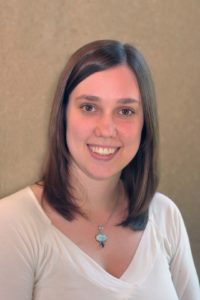
Human pluripotent stem cells are the most primitive cell type, capable of producing any cell of any tissue in the body (i.e. neuron, blood cell, heart cell, eye cell, etc.). As a stem cell progresses towards a specific cell type, it becomes restricted in its ability to become other cell types. In the lab, Rebecca studies how specific signals drive this mechanism and instruct a stem cell to differentiate towards a specific cell lineage. Specifically, she is working towards generating cells of the ocular lens and the olfactory system from human pluripotent stem cells. She is also developing a strategy to purify these particular cell populations from stem cells that could have adopted another cell fate.
This $23,000, one-year research training award is given to students in an effort to provide insight on how to move basic research toward translational research and eventually make it to the clinic.
The award comes with the requirements to take two classes – an Introduction to Translational Science and Topics In Translational Science, as well as a practicum that provides work experience with a clinician.
“I am excited about this opportunity to improve my research,” Rebecca said. “I would love to enhance what I do in the lab, and this award will help me see the clinical aspects of what patients may need so that I can better design my research.”
Rebecca is most interested in aging and treating age-related deterioration of tissues. The implications of her research could lead to the development of cell-based therapies to treat complications like cataracts and other tissue degenerative conditions.
Rebecca’s laboratory work at Texas Biomed is also supported by The Douglass Foundation.